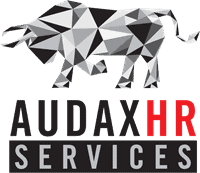Background checks are an important part of any hiring plan for the simple reason that they keep your employees and your customers safe. We’ve all seen the news reports about attacks in the workplace. While these headline-grabbing incidents are thankfully few and far between, other crimes happen on the job every single day.
Failing to properly screen your employees doesn’t just put you at risk for being a victim of a crime, but it puts your business at risk as well. If you hire someone with a history of violent crime and they hurt someone while on the job — you are responsible. If you have an employee that is using illegal drugs and accidently injures someone on the job – you are responsible.
What Does a Background Check Show?
The contents of a background check will vary depending on the industry, the type of job an applicant is seeking, as well as the employer’s preference. The most common background checks consist of criminal history, education, previous employment verifications, and reference checks. These reports could also include results of pre-employment drug testing. The goal is for an employer to feel confident a new hire will not bring foreseeable trouble to the workplace.
What are the Different Types of Background Checks?
There are many different kinds of background checks that can be run on job applicants. A check can include any combination of the following:
Social Security Number Trace – A Social Security Number trace reveals where a potential employee has lived and worked. It also gives you any other names or aliases connected with this person to check during the criminal screen. This is the jumping-off point for any reliable background check.
National Criminal Record Database Search – This is useful for finding out if applicants have committed a crime outside of the state or county where they live and work. Also known as the NCRD, the National Criminal Record Database includes hundreds of millions of records that can be searched quickly.
Federal & Statewide Criminal Records Check – These checks reveal any felonies or misdemeanors by gathering information from the courts, correctional agencies, and law enforcement officials across the state and various federal districts.
County Criminal Records Check – With information from the Social Security Trace researchers can hone in on the exact areas where applicants have lived and worked. This is one of the most common searches done in background checks.
FBI Fingerprint Database – A fingerprint background check can show Criminal History Record Information (CHRI) if a match is found. This CHRI can include arrests, as well as military service records, records of federal employment and naturalization. Many industries are required by law to do a fingerprint based background check. This not necessarily the best option for finding criminal history, but if you work in a hospital, day care, nursing home, finance, drive a taxi, or do other sensitive work, you might be required to submit your prints.
Sex Offender Registry – This will show if an applicant is a registered sex offender. It is included in the NCRD and covers all 50 states.
Healthcare Sanctions Report (HSR) – This check is to see if physicians, nurses, PA’s, etc. have been excluded from participating in federally funded programs like Medicare and Medicaid because of an infraction.
Terrorist Watch List – This check will cross-reference the list of people who are known or are reasonably suspected of being involved in terrorist activity and is maintained by the FBI’s Terrorist Screening Center.
Office of Foreign Asset Control (OFAC) – This search determines if a candidate is considered to be a threat to national security. It is maintained by a division of the US Treasury Department.
Driver’s License Verification and Driving Records Check (MVR Report) – If driving is part of the job, the employer will likely include a check of an applicant’s driving history which will include violations, suspensions, accidents, convictions and any other disciplinary action.
DOT Employment Verification – This check is much more detailed than just looking at motor vehicle records. According to federal law, when researching a Commercial Driver’s License (CDL), you can only look at the last three years, but there are no such restriction on work history. The DOT requires very specific questions to be asked by Human Resources and the entire process can take up to 30 days to complete.
Credit Report Check – Applicants for financial positions or those that are trusted with Personally Identifiable Information (PII) might be subject to a credit check. This will show any current debts, bankruptcies, financial judgements and even payment history.
Education Verification – This check makes sure applicants are not stretching the truth when it comes to earning a degree. High school, college, advanced degrees, as well as certifications can be confirmed.
Employment Verification – Confirming an applicant’s previous employment includes dates, salary, reason for leaving, and rehire eligibility
Professional Reference Check – This check involves actually calling previous employers to talk about an applicant’s job performance.
Professional Qualification Verification – This search makes sure professional licenses are valid. It is appropriate for people in medical fields as well as accountants, engineers, attorneys, and real estate agents. Results show if your applicant’s license is valid, the renewal date and if there have been any disciplinary actions filed.
How Far Back do Background Checks Go?
Non-conviction records will only be reported for 7 years. Under the Fair Credit Reporting Act (FCRA), there is no limitation on reporting a criminal conviction, however many states have passed laws that say Consumer Reporting Agencies (CRAs) cannot report anything beyond 7 years. FCRA compliance is required for any employer for conducting a background check.
How Long Does A Background Check Take?
If there are no hard and fast rules about how long a background check should take; each piece of the check has its own timeline. But if you do not have any “hits” – a background check shows no negative records – it should only take two to three business days to get a completed report. Many of the checks are even returned instantly. Here is a breakdown of the timelines of the different types of background checks:
- Social Security Trace – Instant
- National Criminal Record Database (NCRD) – Instant
- Statewide –18-36 Hours
- County Criminal Records – 48 Hours
- FBI Fingerprint Database – 48 to 72 Hours
- Sex Offender Registry – 4 Hours
- Healthcare Sanction Reports – Instant
- Terrorist Watchlist – Instant
- Office of Foreign Asset Control (OFAC) – Instant
- Driver’s License Verification/Records (MVR) – 72 Hours
- Verifying DOT Employment – 30 Days
- Credit Check – Instant
- Education Verification – 72 Hours
- Employment Verification – 72 Hours
- Professional Reference – 24 to 48 Hours
- Professional Qualification Verification – Instant
- Global Watch List Checks – Instant
Do I Need to Run a Background Check by Law?
Several industries do require background checks, but it is important to note that laws can vary by state. In general, anyone working with children, the elderly, in financial positions, healthcare, government, and DOT regulated jobs should all expect to undergo a background check.
Even if not mandated by law, in these industries especially, it is better to be safe than sorry. The risk of a negligent hiring lawsuit alone should be enough to make screening worthwhile. Additionally, if you are trying to reduce your workers compensation premiums, the carriers often require drug-screening to obtain the Drug Free Credit.
Why Are Background Checks Important?
If you are still wondering why background checks are necessary, these statistics should give you a good idea.
A CareerBuilder survey found that one bad hire can cost an employer upwards of $17,000. Not only is there a monetary cost, but the damage to morale and loss of productivity that comes from hiring the wrong person can have a terrible impact on a workforce. There are even more costly reasons to make sure you know who you are hiring.
According to the 2016 Global Fraud Study, the typical organization loses 5% of annual revenues to fraud. In the United States the median loss was $120,000, and 30% of the fraud happened in small businesses with fewer than 100 employees. The top risks were billing schemes, skimming, non-cash misappropriation, check tampering, and corruption. The biggest reason however, is the safety and well-being of your employees and customers.
According to the US Bureau of Labor Statistics from 2006 to 2010 more than 550 people were murdered each year while on the job. Of those, 77 were multiple homicides. According to the Occupational Safety and Health Administration (OSHA) between 1993 to 1999 an average of 1.7 million people were victims of violent crime while on the job.
Are Free Background Checks Enough?
There are all kinds of services out there on the internet that say you can check someone’s criminal history in seconds. These services are not suitable for employment purposes and can be considered illegal if used for those purposes. Proper background checks are complex; they involve searching the courts on the federal, state, and county levels, as well as checking in with an applicant’s schools and previous employers. The online services just electronically scan databases that are almost always incomplete. Additionally, employers need to understand the various regulations that apply before they find themselves in hot water.
The only real way to determine if a job applicant has a criminal record is to have an actual human being scour court records. They do this for several reasons, first to make sure the record really is for your applicant, and second to see if the there was actually a conviction. No one wants to throw out good hire because of mistaken identity or over a charge that was dropped.
Background checks cannot prevent all violence in the workplace and it can’t guarantee that every hire will be the best fit, but it can go a long way to making sure you make the most informed hiring decisions possible.
Let Audax assist you in screening appropriately for potential hires with the right level of background checking best suited for each position.


